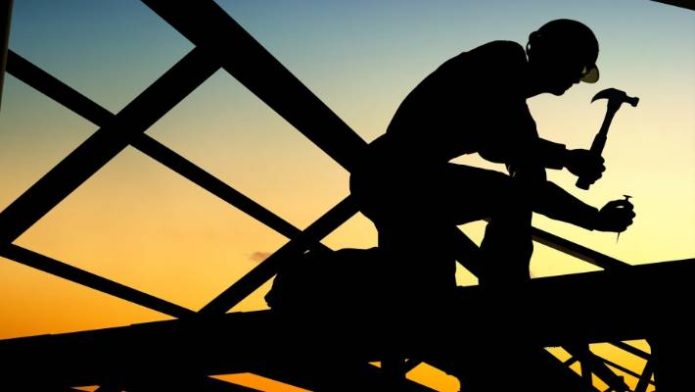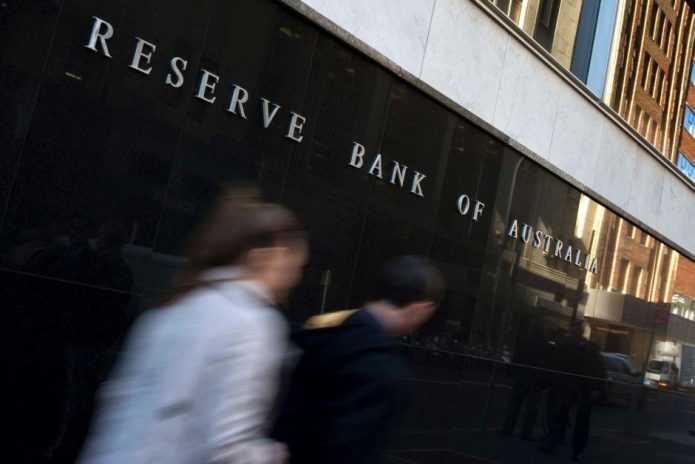PHOTO: Commerz Real
REPUBLISHED WITH PERMISSION | API MAGAZINE
European commercial property giant Commerz Real has targeted Australia’s office market as a key priority for 2023, while the REIA has offered its own commercial real estate forecasts.
A giant of European commercial property has singled out the Australian office market as presenting foreign buyers with renewed and lucrative potential, as they also revealed they are expanding their presence down under.
Speaking exclusively to API Magazine, CEO of Commerz Real, Henning Koch, said that after seven years of sitting on the sidelines the German company with 35 billion euros (A$53 billion) of assets under management was ready to expand in Australia.

Henning Koch, CEO, Commerz Real
“In the last several years, it has been challenging to expand our portfolio further as prices went up and yields were compressed,” Mr Koch said.
“However, Commerz Real believes now is an interesting time to monitor the Australian market, as interest rates are rising, prices are adjusting downwards, and the potential to expand our portfolio might come up in the coming months.”
He said Commerz Real’s focus in Australia was on prime locations in the Sydney and Melbourne office markets.
“Because of the rate of exchange with the Australian dollar, we need to buy in the high-end property markets with large yields to ensure the return on investment for investors makes it worthwhile,” Mr Koch explained.
“However, on the other end, we leverage our equity; we have a lot of equity already and we believe the current trends will provide further opportunities for us.”
Commerz Real entered the Australian market in 2015 with the purchase of a new office building with a long term and stable tenancy in the Sydney CBD.
They next ventured into the Brisbane market with the addition of two hotels to the Australian portfolio.
Political stability

Commerz Real has expanded its international investments to include Australia, with the purchase of the former Federal Police headquarters in Sydney.
Speaking during a research trip to Sydney and Melbourne, Mr Koch confirmed to API Magazine that another significant Australian acquisition was imminent.
He added that the company was considering opening an office in Australia, following its recent launch of a New York office.
Given the geopolitical turmoil unfolding in Europe, Mr Koch said Australia’s political stability and admirable record in Environmental, social, and governance (ESG) investing, was an attraction to major international corporate investors.
“Both real estate and ESG are very attractive in Australia, and that is another reason why we are looking to expand our portfolio here,” Mr Koch said.
“The relative stability opens up opportunities that come with less risk than what investors currently experience in Europe.
“The growth of the commercial property market and population growth in Australia are seen as exceptional advantages, and unique when compared to other markets, including America, Asia, or Europe.”
Commercial prospects in 2023
Commenting after the recent release of its inaugural State of the Industry Report: Australian Commercial Real Estate, the Real Estate Institute of Australia (REIA) predicted the commercial property standouts for 2023 were in Australia’s regional areas, which it said was primed for demand growth after years of investors focusing on capital cities.
Hayden Groves, President, REIA, backed up Commerz Real’s positive international sentiment about the Australian market.
He said that despite a mixed bag of economic headwinds, the OECD is forecasting Australia will outperform many other advanced economies, backed by GDP growth of around 2.5 per cent.
“On the one hand you have energy prices that will have a major impact on outgoings, while on the other you have an economy performing relatively well and migration programs expanding.
“Energy prices are set to increase by around 56 per cent as international migration resumes for the second year at significant scale, with an estimated 235,000 people set to call Australia home next financial year.
“All of these changing factors offer a unique set of opportunities and challenges in the run in to 2023 for the commercial real estate sector, be it practitioners, investors or occupiers,” Mr Groves said.
Australian industries attracting most foreign direct investment (A$ billion)

2023 to be driven by occupants
Ray White Commercial agent Jack Gwyn said there was a slight pause in the market at the start of the pandemic in 2020, but it kicked back off again in May that year, with vacancy declining ever since.
He said he felt the market in 2023 would be very much driven by occupants.
“Industrial rents had been stagnant for as long as I had worked in the industry, however, they have seemed to go up by about 30 per cent over the past 18 months, while incentives have been diminishing,” he said.
“The rental growth seems to be combating softening yields, leading to a stabilisation of investment stock values.”
Mr Gwyn said demand from owner-occupiers remained high.
“They are paying similar rates for vacant stock as investors are for good, leased stock, which I feel will reduce the supply of new leased investments as developers will be less motivated to use incentives to lure tenants in if they can just sell to owner-occupiers for a similar price.
“The minimal vacancy will drive tenants to new developments, however, I don’t see them getting as attractive incentives as they had in the past.
“In my opinion we will see more tenants renewing in their existing facilities instead of moving around, unless the size of their current facility is no longer sufficient.”
Lui Violanti, Regional Manager of Inhabit Group and Chairperson of Asia Property Awards Australia, recently identified the two commercial markets with the most promising growth prospects as the industrial and healthcare sectors.
ESG shaping commercial investment
Commerz Real’s Mr Koch expressed pleasant surprise at the advanced state of ESG as a commercial property variable, a point reinforced by a diversified funds management group.
Amy Pham, Portfolio Manager for the Pengana High Conviction Property Securities Fund, said ESG is becoming more influential in listed and unlisted property as governments and corporates commit to net zero targets.
“ESG in property is not just a ‘feel good’ thing, it is having a tangible impact on valuations – ESG factors make up 30 per cent of our listed property valuations.
“For example, environmental factors will become more important with many governments and corporates mandating net zero targets.
“Some of these targets are ambitious, and will accelerate the focus on sustainability in the built environment over the next few years.”
“Meeting this demand will have its challenges but will create strong investment opportunities.
“ESG factors are also influential in managing risk in listed property, for example in understanding which assets might be a greater risk of fire and floods due to climate change.
“There is also risk involved with assets which perform poorly from a sustainability standpoint.
“Over the long-term, assets with a high NABERS rating will outperform.”
Ms Pham said Australian real estate investment trusts (A-REITs) were set for a rebound in 2023.
She said some big name A-REIT stocks could be considered oversold during 2022, and have potential to rebound into 2023.
“Some of the bigger property fund managers look like good value, and could benefit as interest rates stabilise, given these remain high quality businesses.
“There’s still likely to be some uncertainty and volatility in the market, which brings some of the alternative A-REIT investments into play.
These alternatives are often defensive as they are considered necessities, operating in sectors such as healthcare, childcare, seniors living and defensive retail.”
Video Questions:
00:00 = Introduction and research trip overview
01:24 = What makes the Australian commercial property market so interesting for a German company?
03:45 = Which cities are your major focus?
05:00 = Which sectors of the commercial market are of most interest?
06:27 = Does Australia present any challenges compared to investing elsewhere?
08:30 = What are the opportunities presented within Australia’s commercial market compared to internationally?
12:12 = How important is Environmental, social, and governance (ESG) as a factor in investment decision making?
13:04 = Will foreign investment be geared for rental investment, intended migrants or international students?
14:24 = What is your next investment target in Australia?
15:30 = Concluding comments
Article Q&A
Which Australian industries are attracting the most foreign investment?
What are the prospects for commercial real estate in Australia in 2023?
Hayden Groves, President, REIA, backed up Commerz Real’s positive international sentiment about the Australian market, saying that despite a mixed bag of economic headwinds, the OECD is forecasting Australia will outperform many other advanced economies, backed by GDP growth of around 2.5 per cent. CEO of Germany’s Commerz Real, Henning Koch, said Australia’s growing population, political stability, green investment credentials and healthy economy meant its commercial property was a prime target for international investors in 2023 and beyond.
MOST POPULAR IN NEW ZEALAND
- Auctioneer refuses $500 bid on a house
- Jonah Lomu’s widow Nadene ‘moving on with life’ as a realtor
- Claims about Jacinda Ardern’s wealth
- Sir John reveals what it would take for housing market to ‘really crack’
- How 27-year-old owns four properties | WATCH
- Property prices CRASH to see biggest drop in five years
- Yes, dreams do come true! How to become a real estate agent superstar
- Real estate agent dumb awards | WATCH
- Family paid $500k for modular home they may never receive
- Abandoned land for sale















